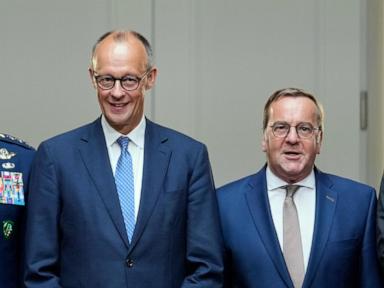Germany has initiated a campaign to enhance voluntary military recruitment as part of its strategy to reinforce the armed forces. On Wednesday, leaders announced the effort in response to escalating concerns regarding potential Russian aggression. The initiative is particularly significant as it aims to build upon recent military reforms introduced after Russia’s invasion of Ukraine in 2022.
In the wake of this invasion, Germany allocated a substantial **100 billion euro** (approximately **$117 billion**) fund aimed at modernizing the **Bundeswehr**, the country’s military. Much of this funding has been directed towards acquiring new equipment. Chancellor **Friedrich Merz** has emphasized his ambition to transform the Bundeswehr into “the strongest conventional army in Europe.”
Recruitment Goals and Challenges
Despite these efforts, the German military has faced persistent challenges in recruitment. As of the end of last year, the active personnel count was approximately **181,000**, while the government aims to raise this number to **260,000** in the long term, along with an additional **200,000** reservists. Defense Minister **Boris Pistorius** highlighted the urgency of this growth, stating, “The Bundeswehr must grow — the international security situation, above all Russia’s aggressive behavior, make this necessary.” He underscored the need for a well-equipped and personnel-strong military to ensure credible deterrence against threats.
The new recruitment initiative aims to attract individuals to join the military voluntarily, avoiding the reinstatement of compulsory conscription, which was suspended in **2011**. The plan includes enhanced pay and benefits for recruits who commit to serving for shorter periods, along with attractive training offers for those who enlist for at least six months. Starting next year, the government will distribute questionnaires to young men and women turning **18** to gauge their willingness to serve. By mid-2027, medical examinations will be required for young men, although this will not obligate them to enlist.
Political Tensions and Future Prospects
The recruitment plan is pending parliamentary approval and was discussed during a rare Cabinet meeting held at the Defense Ministry. Prior to the decision, NATO’s supreme commander in Europe, **U.S. Gen. Alexus Grynkewich**, briefed ministers on the current security landscape. Tensions have emerged within Merz’s governing coalition, particularly between his conservative party and the center-left **Social Democrats**, regarding the potential return to compulsory service if volunteer numbers fall short.
While some conservative members of the coalition have advocated for reinstating compulsory service, Pistorius emphasized that current conditions, such as inadequate barracks and training personnel, do not support this move. The plan allows for the possibility of re-evaluating the need for compulsory service if recruitment targets are not met within the next few years. Merz expressed confidence that initial recruitment efforts would meet the necessary figures, stating, “I am confident, at least from today’s point of view, that in any case to begin with we will reach the figures we need.”
Bavarian governor and senior conservative ally of the Chancellor, **Markus Söder**, commented on the initiative, describing it as “a first step in the right direction.” He expressed skepticism about the effectiveness of voluntary appeals, suggesting that compulsory service may ultimately be unavoidable given the current geopolitical climate. Söder pointed out the looming threat posed by Russia, with some analysts suggesting that President **Vladimir Putin** could challenge NATO forces as early as **2027** or **2029**.
As Germany navigates these complex military and political waters, the success of its recruitment drive will be crucial in determining the future strength and readiness of its armed forces.








































































